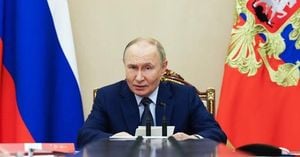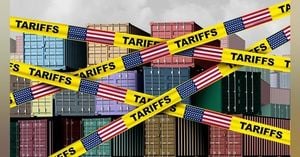On April 1, 2025, Israeli nationalists announced their intention to shift from demonstrations to peaceful civil disobedience against Prime Minister Benjamin Netanyahu's government, protesting recent government decisions that have sparked widespread anger among the populace. The protests, which have gained significant traction, particularly in the Western Wall area, were organized in response to the government's decision to dismiss the head of the General Security Service (Shabak), Ronen Bar, and to express distrust in the legal advisor, Gali Baharav-Miara.
The Hebrew newspaper Israel Today reported that the protests have been characterized by mass demonstrations, with leaders accusing Netanyahu's administration of "trampling on every state institution and turning the Knesset into a tool to fight democracy." Protesters have also raised concerns about security issues and the treatment of hostages in Gaza, claiming that the government's actions are dismantling Israeli society.
Yaya Fink, one of the protest leaders, stated, "Netanyahu's government is not stopping at crossing red lines." He further emphasized that the government is neglecting the security of the nation while endangering lives, particularly those of hostages. Fink declared, "We are moving from protest to resistance and from resistance to peaceful civil disobedience. This is the time for the Israeli public to fight for the state and for our children." His comments reflect a growing sentiment among demonstrators that the current administration poses a significant threat to democracy and civil rights.
Another protest leader, Moshe Radman, echoed these sentiments during a speech at the protest, stating, "Regarding you, Netanyahu, a personal word, you will not find any concessions, so prepare your bags and spend your days in prison or as a political refugee." This statement highlights the deepening divide between the government and its critics, as well as the intensity of feelings surrounding Netanyahu's leadership.
On March 23, 2025, the Israeli government voted unanimously to suspend trust in its legal advisor, an action that has further fueled public outrage. The protests held outside the Knesset are seen as a crucial step by protest leaders to rally support against what they describe as a government overreach that threatens democratic norms.
In addition to the protests against government decisions, the Israeli Minister of Defense, Israel Katz, recently released a video showing unrest along the Syrian coast, where security forces were preparing for a new situation under the leadership of the Chief of Staff. Katz characterized the unrest as the emergence of Iranian jihadists operating against civilians, stating, "The Golan is revealing its true face: Iranian jihadists from the base school are operating and causing chaos against civilians." He assured that Israel would defend itself against any threat from Syria and would maintain security in the Golan Heights.
In a related operation, the Israeli army and Shabak conducted a strike in the Beirut area against a Hezbollah operative who was allegedly planning a significant attack. A joint statement from the military indicated that the operative posed a real and immediate threat, prompting the need for decisive action.
As protests continue to unfold, the Israeli police have been actively dispersing demonstrators who have gathered near the Knesset in Jerusalem. Reports indicate that police have been attempting to clear out protesters who have marched from Gaza Street, raising anti-Netanyahu slogans and demanding accountability for the government's actions.
The ongoing protests reflect a broader discontent with Netanyahu's policies, particularly following his decision to dismiss key figures in the security establishment. This dismissal has raised alarms among many citizens, who fear that the government's actions could jeopardize national security and undermine the rule of law.
Since October 7, 2023, Israel has faced significant international scrutiny due to its military actions in Gaza, resulting in a tragic toll of over 164,000 deaths and injuries among Palestinians, with a majority being women and children. The humanitarian crisis has prompted calls for accountability and has added to the complexity of the domestic political situation.
In light of these events, the protests are expected to escalate, with organizers planning a major demonstration under the banner "Protective Shield for Democracy" outside the Knesset. This rally is seen as a pivotal moment for the opposition, as they seek to mobilize public support against what they perceive as an authoritarian drift within the government.
The protests are not only a response to specific government actions but also a reflection of a broader struggle for the soul of Israeli democracy. As demonstrators gather and prepare for future actions, the stakes are high, and the outcome of this civil disobedience movement could significantly shape the political landscape in Israel.





